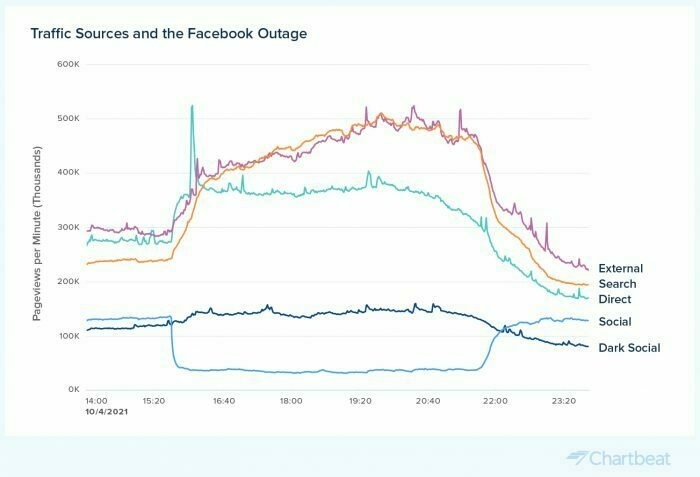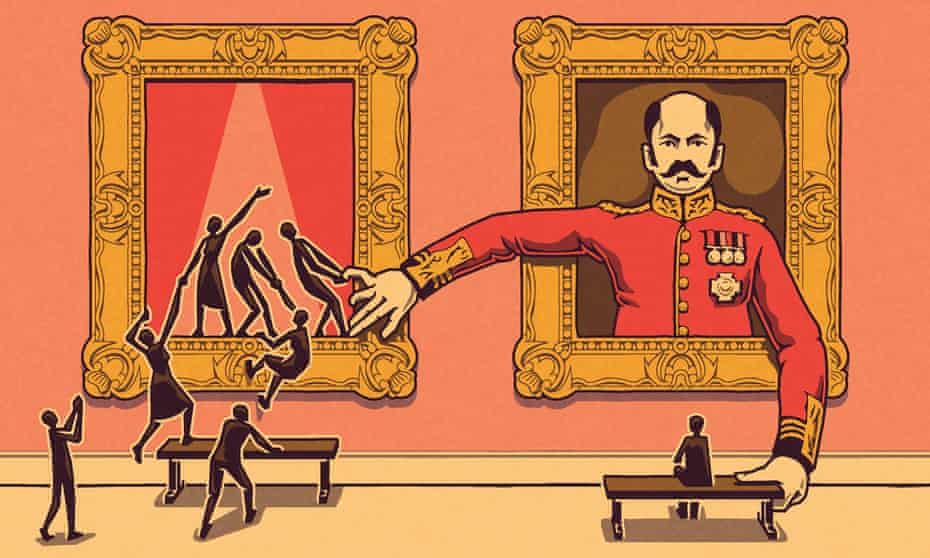2021
- paying close attention to the feelings and emotions that accompany the decision we’re facing,
- assessing how motivated we are to work toward the success of any given option, and
- recognizing that no matter what option we choose, our efforts to support its success will be more important than the initial guesswork that led to our choice.
- Rewilding Your Attention (CJ Eller)
- “Rewilding Your Attention” (Clive Thompson)
- Increasing your 'serendipity surface' (Discours.es)
- Solarpunk: Notes toward a manifesto (Hieroglyph)
- Plans for $400-billion new city in the American desert unveiled (CNN Style)
- Jeff Bezos and the New Pharaohs (Singularity Weekly)
- Eating a Single Hot Dog May Take 36 Minutes Off Your Life, Study Says (Inside Edition)
- Twitter tests safety mode feature to silence abuse (BBC News)
- Follow boring advice (Vitaly Pushkar)
- Why Fitter People Drink More Alcohol (Outside Magazine)
- Why Does The Sunlight Come From The North In Shaded Relief Maps? (Ramble Maps)
- Your Phone Is Your Private Space (The Atlantic)
- Britain tamed Big Tech and nobody noticed (WIRED)
- Twitter Arguments (OneZero)
- I wish the fediverse had ‘circles’ (Ru Singh)
- The New Puritans (The Atlantic)
- The Art of Not Taking Things Personally (The Founder Coach)
- The complicated reality of doing what you love (Vox)
- The Uncensored Library gives gamers "a safe haven for press freedom" (Dezeen)
- Ethiopia to build local rival to Facebook and WhatsApp (Tech Central)
- Kuo: iPhone 13 to support LEO satellite communication, allowing users to make phone calls and send texts without cell signal (9to5Mac)
- Why is walking so good for the brain? Blame it on the "spontaneous fluctuations" (Salon)
- Why cloud gaming could be a big problem for the climate (Polygon)
- What if you're already on top of things? (Oliver Burkeman)
- Three hours a week: Play time's over for China's young video gamers (Reuters)
- This Distro Combines Ubuntu with the CuteFish DE (OMG! Ubuntu!)
- Why pigeons mean peril for satellite broadband (BBC News)
-
Assuming you’re hiring good people, it’s very likely they do have other options. It might be a pain for someone to leave and find another job, but generally it’s something people are able to do.
-
Using someone’s paycheck as your primary leverage might be effective in the very short-term, but it’s rarely a way to build or retain an engaged, invested staff in the long-term.
Good decision-making
Some useful advice from Ed Batista about the difference between ‘good decision-making’ and ‘making the right decision’.
I believe the path to getting unstuck when faced with a daunting, possibly paralyzing decision... involves a fundamental re-orientation of our mindset: Focusing on the choice minimizes the effort that will inevitably be required to make any option succeed and diminishes our sense of agency and ownership. In contrast, focusing on the effort that will be required after our decision not only helps us see the means by which any choice might succeed, it also restores our sense of agency and reminds us that while randomness plays a role in every outcome, our locus of control resides in our day-to-day activities more than in our one-time decisions.Source: Stop Worrying About Making the Right Decision | Ed BatistaSo while I support using available data to rank our options in some rough sense, ultimately we’re best served by avoiding paralysis-by-analysis and moving forward by:
This view is consistent with the work of Stanford professor Baba Shiv, an expert in the neuroscience of decision-making. Shiv notes that in the case of complex decisions, rational analysis will get us closer to a decision but won’t result in a definitive choice because our options involve trading one set of appealing outcomes for another, and the complexity of each scenario makes it impossible to determine in advance which outcome will be optimal.
Carbon offsets are pure greenwashing
Having travelled here, there, and everywhere by air for both personal and professional business over the last decade, it took me too long to realise the scale of the climate emergency.
When I did, I looked into climate offsets, but found that they’re hugely problematic, and often a scam. That’s why I’m not flying any more. It’s good to hear Greenpeace’s Executive Director Jennifer Morgan come out so strongly against them, and put pressure back on the fossil fuel industry.
Carbon offsets are allowing the world's biggest polluters to forge ahead with business plans that are threatening global climate goals, the head of Greenpeace International said in an interview.Source: Greenpeace calls for end to carbon offsets | ReutersThe model allows polluting companies to offset their emissions by buying credits from projects that reduce or avoid the release of climate-warming CO2 elsewhere, such as mass tree plantings or solar power farms - which could be worth $50 billion by 2030 according to a task force created to scale up the market.
Environmental advocates such as Greenpeace say this is allowing big emitters like oil majors to put off cutting their own emissions and avoid divesting from hydrocarbons, a primary source of greenhouse gases that cause global warming.
“There’s no time for offsets. We are in a climate emergency and we need phasing out of fossil fuels,” Greenpeace’s Executive Director Jennifer Morgan said at the Reuters Impact conference.
She said one issue with planting trees as offsets was that it takes 20 years for trees to grow and offset emissions happening right now. In the interim wildfires could destroy the chance of reductions."
These offsetting schemes … are pure ‘greenwash’ so that the companies, oil companies, can continue to do what they’ve been doing and make a profit," she said.
Six Causes of Burnout at Work
This is an interesting article from UC Berkley’s Greater Good Magazine based on journalist Jennifer Moss' new book The Burnout Epidemic: The Rise of Chronic Stress and How We Can Fix It. It not only talks about organisational factors, but personality types as well.
1. Workload. Overwork is a main cause of burnout. Working too many hours is responsible for the deaths of millions of people every year, likely because overwork makes people suffer weight loss, body pain, exhaustion, high levels of cortisol, sleep loss, and more.Source: Six Causes of Burnout at Work | Greater Good2. Perceived lack of control. Studies show that autonomy at work is important for well-being, and being micromanaged is particularly de-motivating to employees. Yet many employers fall back on watching their employees’ every move, controlling their work schedule, or punishing them for missteps.
3. Lack of reward or recognition. Paying someone what they are worth is an important way to reward them for their work. But so is communicating to people that their efforts matter.
4. Poor relationships. Having a sense of belonging is necessary for mental health and well-being. This is true at work as much as it is in life. When people feel part of a community, they are more likely to thrive. As a Gallup poll found, having social connections at work is important. “Employees who have best friends at work identify significantly higher levels of healthy stress management, even though they experience the same levels of stress,” the authors write.
5. Lack of fairness. Unfair treatment includes “bias, favoritism, mistreatment by a coworker or supervisor, and unfair compensation and/or corporate policies,” writes Moss. When people are being treated unjustly, they are likely to burn out and need more sick time.
6. Values mismatch. “Hiring someone whose values and goals do not align with the values and goals of the organization’s culture may result in lower job satisfaction and negatively impact mental health,” writes Moss. It’s likely that someone who doesn’t share in the organization’s mission will be unhappy and unproductive, too.
Facebook isn't just anti-competitive, it's anti-consumer
I can’t quite understand why people still use Facebook’s services, other than vendor lock-in?
The tool I created, a browser extension called Unfollow Everything, allowed users to delete their News Feed by unfollowing their friends, groups, and pages. The News Feed, as users of Facebook know, is that never-ending page that greets you when you log in. It’s the central hub of Facebook. It’s also a major source of revenue. As a Facebook whistleblower observed on 60 Minutes on Sunday, time spent on the platform translates to ads viewed and clicked on, which in turn translates to billions of dollars for Facebook. The News Feed is the thing that keeps people glued to the platform for hours on end, often on a daily basis; without it, time spent on the network would drop considerably.Source: Facebook banned me for life because I created the tool Unfollow Everything | Slate[…]
Facebook’s behavior isn’t just anti-competitive; it’s anti-consumer. We are being locked into platforms by virtue of their undeniable usefulness, and then prevented from making legitimate choices over how we use them—not just through the squashing of tools like Unfollow Everything, but through the highly manipulative designs and features platforms adopt in the first place. The loser here is the user, and the cost is counted in billions of wasted hours spent on Facebook.
Traffic to news sites went up during the Facebook outage.
It’s really problematic that most people get their news via algorithmic news feeds.
On August 3, 2018, Facebook went down for 45 minutes. That’s a little baby outage compared to the one this week, when, on October 4, Facebook, Instagram, and WhatsApp were down for more than five hours. Three years ago, the 45-minute Facebook break was enough to get people to go read news elsewhere, Chartbeat‘s Josh Schwartz wrote for us at the time.Source: When Facebook went down this week, traffic to news sites went up » Nieman Journalism LabSo what happened this time around? For a whopping five-hours-plus, people read news, according to data Chartbeat gave us this week. (And they went to Twitter; Chartbeat saw Twitter traffic up 72%. If Bad Art Friend had been published on the same day as the Facebook outage, Twitter would have literally exploded, presumably.)
Who wants a metaverse created by Facebook?
No-one.
Facebook is nearing a reputational point of no return. Even when it set out plausible responses to Ms Haugen, people no longer wanted to hear. The firm risks joining the ranks of corporate untouchables like big tobacco. If that idea takes hold, Facebook risks losing its young, liberal staff. Even if its ageing customers stick with the social network, Facebook has bigger ambitions that could be foiled if public opinion continues to curdle. Who wants a metaverse created by Facebook? Perhaps as many people as would like their health care provided by Philip Morris.Source: Facebook is nearing a reputational point of no return | The Economist
Microcast #095 — Rewilding your serendipity surface
Attention, Big Tech, and choosing to curate rather than be curated.
Show notes
See also: Fraidycat and Rewilding Your Attention (Read Write Collect)
Image: Pexels
Background music: Shimmers by Synth Soundscapes (aka Mentat)
Microcast #094 — Solarpunk vs technocratic pharaohs
Overview
A thematic look at sustainable futures, from equitable approaches to chimeric fetuses and phallic spaceships.
Show notes
See also: Bright green, blight green, and lean green futures (Open Thinkering)
Image: Solarpunk Flag by @Starwall@radical.town
Background music: Shimmers by Synth Soundscapes (aka Mentat)
Microcast #093 — Boring hot dogs
Overview
Everything from life-shortening foods to Twitter's attempt to control feuds.
Show notes
Image via Pexels
Background music: Shimmers by Synth Soundscapes (aka Mentat)
Microcast #092 — Drinking in the sunlight
Overview
Another eclectic mix of articles, from Apple to alcohol.
Show notes
Image via Pexels
Background music: Shimmers by Synth Soundscapes (aka Mentat)
Microcast #091 — Arguing in circles
Overview
An eclectic mix of articles in today's microcast, covering everything from teens and tech to Fediverse functionality.
Show notes
Image via Pexels
Background music: Shimmers by Synth Soundscapes (aka Mentat)
Microcast #090 — Doing what you love in an angry world
Overview
I try and spot a theme between the three articles I pick out. Today's is something around (negative) emotions and getting on (well) with others.
Show notes
Image: Nick Fewings
Background music: Shimmers by Synth Soundscapes (aka Mentat)
Microcast #089 — Circumvention
Overview
In this microcast I discuss three articles loosely related to censorship and the circumvention thereof.
Show notes
Image: Michael Dziedzic
Background music: Shimmers by Synth Soundscapes (aka Mentat)
Microcast #088 — Spontaneous fluctuations
Overview
In which I pick another three interesting items from my bookmarks to discuss.
Show notes
Image: Richard Horvath
Background music: Shimmers by Synth Soundscapes (aka Mentat)
Microcast #087 — Back in the game!
Overview
It's been a long time since the last microcast, but they're back! Comments? Questions? Add them below!
Show notes
Image: Erik McClean
Background music: Shimmers by Synth Soundscapes (aka Mentat)
How long before everyone's using decentralised messengers?
I first experimented with Linux in 1997. It wasn't until 20 years later that I was running it as my default operating system.
I hope it doesn't take as long for something like Briar to be my default messaging app! It's difficult to make the case for it when everyone's got WhatsApp, Signal, Telegram, or the like.
But the radical, decentralised, approach to privacy that Briar takes is refreshing.

Another potential use case scenario for Briar are natural disasters. With the climate crisis getting worse day by day, destruction of critical infrastructure is a problem affecting more and more parts of the world, as the recent floods in Europe and China and the wildfires all around the world have shown.
While Briar can definitively be useful in those situations, its trade-offs in favor of privacy are severely limiting its connectivity capabilities. To make an example, imagine your city just got nearly extinguished by a wildfire, destroying all the telecommunications infrastructure that was once there. Fortunately, you and your friends got Briar installed, so when a friend of you drops by you grasp at the chance and write messages to all your friends in-town. One could think that all those messages get synchronized to your friend’s device, so she can serve as a carrier for your other friends' messages. Unfortunately, that’s not how Briar works.
As I’ve outlined before, metadata protection is one of Briar’s primary goals. Therefore, Briar doesn’t synchronize messages to your friend Alice with Bob when you meet him in order to not let Bob know that you’re communicating with Alice. This is very useful when you can’t trust even your contacts not to be spying on you, but it’s most likely a huge problem when connectivity is all you want in the face of natural disasters.
This message routing scheme used by Briar is called “single-hop social mesh” because you only ever send messages to your contacts if you have a direct connection to them. During catastrophes you most likely want to have at least “multi-hop social mesh” or yet even better “public mesh” where you share messages not only with your contacts but with anybody using Briar. However, as connectivity improves, privacy gets worse because people will know when you’re communicating with whom.
The good news are that Briar is currently receiving funding to conduct research on supporting other types of mesh. Still it will take a lot of time until something gets implemented in Briar, so all of this should be considered long-term perspectives. Note, though, that this mainly affects private chats and private groups. If you and all your friends are part of a forum (Briar’s “public” version of group chats), Alice will indeed serve as a carrier for your messages sent to that forum.
Moral outrage and social media
I’ve largely quit Twitter these days, mainly because the social network I joined in 2007 turned into a rage machine sometime in the last 5-10 years. I suspect it had something to do with their IPO in 2013 and transformation to what I term “software with shareholders”.
This Yale study proves a link between increased outrage and the number of likes and retweets received. But then, we already knew that.
Moral outrage can be a strong force for societal good, motivating punishment for moral transgressions, promoting social cooperation, and spurring social change. It also has a dark side, contributing to the harassment of minority groups, the spread of disinformation, and political polarization, researchers said.Source: ‘Likes’ and ‘shares’ teach people to express more outrage online | YaleNewsSocial media platforms like Facebook and Twitter argue that they merely provide a neutral platform for conversations that would otherwise happen elsewhere. But many have speculated that social media amplifies outrage. Hard evidence for this claim was missing, however, because measuring complex social expressions like moral outrage with precision poses a technical challenge, the researchers said.
To compile that evidence, Brady and Crockett assembled a team which built machine learning software capable of tracking moral outrage in Twitter posts. In observational studies of 12.7 million tweets from 7,331 Twitter users, they used the software to test whether users expressed more outrage over time, and if so, why.
The team found that the incentives of social media platforms like Twitter really do change how people post. Users who received more “likes” and “retweets” when they expressed outrage in a tweet were more likely to express outrage in later posts. To back up these findings, the researchers conducted controlled behavioral experiments to demonstrate that being rewarded for expressing outrage caused users to increase their expression of outrage over time.
Motivating people who don't need a job
There are two kinds of people who don’t need the job you’re providing for them. The first kind is the independently wealthy. The second kind is the person with an in-demand skillset (or rare knowledge/experience).
The last time I was employed, I kept reminding my boss that I came from consulting and I could always go back to it. And that’s what I did. Employers whose main way of motivating employees is to implicitly threaten them with ‘not having a job’ aren’t worth working for.
You should manage all of your employees as if they don’t “need” their jobs and have other options — whether those options are family money or the ability to go out and get another job with their skills.There are two reasons for that:Source: how do I manage an employee who doesn’t need the job? | Ask a Manager
The way you motivate someone who doesn’t need the money is the same way you should motivate people who do need the money: by giving them meaningful roles with real responsibility where they can see how their efforts contribute to a larger whole, giving them an appropriate amount of ownership over their work and input into decisions that involve that work, providing useful feedback, recognizing their contributions, helping them feel they’re making progress toward things that matter to them, and — importantly — not doing things that de-motivate people (like yelling or constantly shifting goals or generally being a jerk).
100% inheritance tax?
If we can’t stop people raking up ridiculous sums of money, we can definitely prevent them passing on that wealth to their kids. Thankfully, more enlightened rich people (in this case actor Daniel Craig) are already putting their own measures in place.
In a Hollywood interview published this week in Candis magazine, Mr Craig made reference to Andrew Carnegie, the Scottish-born US industrialist and one of the wealthiest men in history.Source: ‘Inheritance is distasteful’: Daniel Craig’s children will not be getting his Bond millions | The Telegraph“Isn’t there an old adage that if you die a rich person, you’ve failed?” he said. “I think Andrew Carnegie gave away what in today’s money would be about $11 billion, which shows how rich he was because I’ll bet he kept some of it too.“
But I don’t want to leave great sums to the next generation. I think inheritance is quite distasteful. My philosophy is: get rid of it or give it away before you go."
Culture is in a state of constant flux
My parents, the son of a factory worker and assistant baker and the daughter of domestic servants, were both the first in their families to go to university. As such, they wanted to ensure that their children, my sister and I, knew our way around ‘culture’.
Hence, for me, a childhood punctuated not only piano lessons and visits to National Trust properties but visits to the cheapest seats at the theatre to see ballets and plays. In their mind, at least back then, there was ‘Culture’ (with a capital ‘C’) to which we had to be introduced.
As Kojo Koram from the School of Law at Birkbeck, University of London, writes, however, culture is something that is continually remade by the people living it. These different conceptions mark the boundaries of the culture wars currently being played out in British politics and society.
In the 1960s and 70s, when [Stuart] Hall was writing, most British intellectuals dismissed the new mass culture taking hold in the country as a passing fad that did not deserve the attention given to Shakespeare, Elgar or Hogarth. But Hall recognised how it offered an increasingly multicultural British population the opportunity to interpret and experience life as it was lived on the ground. Rather than seeing culture as something fixed and unchanging that needed constant protection, Hall saw it as something that underwent “constant transformation” and was always being made and remade by the people living it, a moving force that perpetually created new identities.Source: Here’s what the right gets wrong about culture: it’s not a monument, but a living thing | The GuardianIt is no coincidence that so many of the primary battlegrounds where today’s culture wars are being staged are the elite institutions that represent a traditional British hierarchy: stately homes, Oxford university common rooms, the Last Night of the Proms. To culture warriors on the right, these institutions best represent Britain’s national culture as a whole. That they are exclusive is part of their appeal: when culture is defined as something that only a few people can access or control, its preservation is best entrusted to high-ranking authorities.









